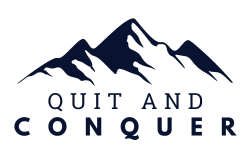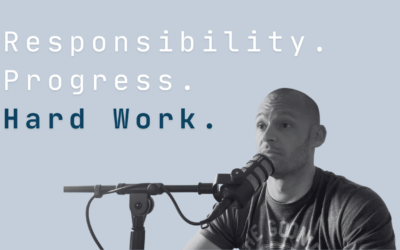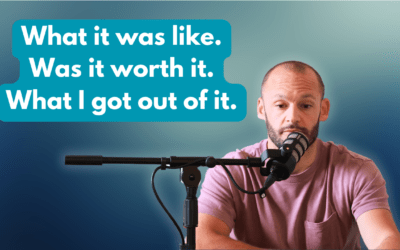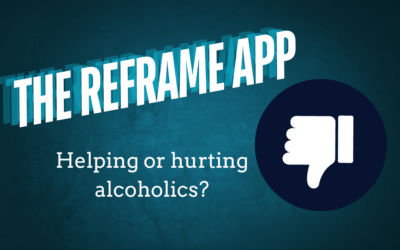I’ve never really been anonymous. I called my boss on my way to rehab to give him a heads-up. I told my fiancée that I had a problem before our first date. To me, it’s always made things much simpler. After finally hearing myself utter the words and admit I had a problem, I found it easier to just be upfront about the situation.
Along the way, there have been unexpected benefits from openly sharing about my past substance abuse and resulting addiction. Over time, these benefits have solidified into concrete reasons why I choose to remain this way, even when it isn’t simpler or easier to do so. And, while I’m not suggesting that this is a better way to handle recovery, it has served me well. My hope is that by sharing these reasons with you, you might be encouraged to be more open about your own recovery and history and share in some of the same benefits. So, let’s dive in.
1. My Shame Became Honor
I was filled with a lot of shame when I first got clean. Not about having a substance abuse problem—that part I could stomach—but with how I had been behaving the years prior. I was unreliable, I was constantly lying, and I really hadn’t done anything with my life. I quickly realized that I had one of two choices: I could dwell in the past on things I couldn’t change, or I could move forward and focus on turning things around. I chose the latter.
Jordan Peterson, a prominent psychologist and one of my favorite social commentators, has said, “If you’re a monster and you don’t act monstrously, then you’re virtuous.” I always loved that. In many ways, I am a monster. With one bad decision, I could take years worth of progress and effort and light it all on fire. But today, I choose not to. Tomorrow I’ll choose not to, and the day after that.
Active addiction turns me into a terrible person, a version of myself that I’m not particularly proud of. For a very long time, I didn’t even recognize this. But eventually, I did notice, and I fully committed to finding a way to manage my problem and better myself. I decided to no longer act monstrously, and I’m probably more proud of that than anything I’ve done in my life thus far.
2. I Own My Mistakes
Addiction is a disease. I’m not a doctor or clinical psychiatrist, and they’ve classified it as such, so I’m not going to sit here and deny it. But just because it’s a disease doesn’t mean we don’t have any culpability in the matter. This isn’t going to be a popular opinion, but here it goes.
Drug addiction occurs through a rewiring of the brain. Our built-in reward system becomes hijacked and skewed towards desiring drugs and alcohol above anything else. On top of that, areas of the brain that affect our judgment, decision-making, and willpower change too. But for all of this to occur, something has to happen first. The brain needs repeated and consistent exposure to the drug in the first place. That part’s on us.
Yes, you can be genetically predisposed to developing an addiction to certain substances. Yes, there are environmental factors that increase the likelihood of becoming an addict. All of this can be true, and we can still be responsible for our addiction. We chose to consistently take drugs, for whatever reason, and as a consequence, we became addicts.
I was messing up for a long time, and I knew better. As far as I’m concerned, I am primarily responsible for the situation I’m in now. This is despite having a rough childhood, despite lacking guidance, and despite having a family where drug and alcohol addiction are clearly an issue. Because of this, I feel compelled to be straightforward about it with others. I don’t want to sweep it under the rug in my daily life or act like it’s some affliction I had no ability to avoid and now need to manage.
I made bad choices. Those choices had negative and lifelong consequences. By accepting total responsibility for my substance abuse and subsequent addiction, I gain the power to change for the better. This may not be a popular viewpoint, and I get it, but it works for me, and I want to be honest about it.
3. I Want to Remember
Part of the reason I’m so open about being in recovery and my past substance abuse is because I use talking about it as a tool to remind myself of how bad things were.
I make a lot of jokes about abusing drugs in my past. That might not be everyone’s cup of tea, and that’s fine; it doesn’t have to be. But it’s just satire. On the surface, it’s funny. But at its core, what I’m saying is quite raw and serious. It’s a way to express my past without being overly dark or dramatic.
Also, by being open to discussing that side of myself and the consequences involved, I’m constantly reminded of why I need to remain clean and sober. People tend to quickly minimize and downplay the negative aspects of things, not just to others but to ourselves. By making light of the situation and finding some humor in it, I find it easier to be real about what active addiction looked like for me. And I don’t want to forget. Ever.
4. It Can Help Others
There are millions of people affected by drug and alcohol addiction across the country. Not all of them are addicts themselves, and not all of them attend meetings. By forgoing any anonymity in my daily life and by talking openly about my past, I may find people around me that I can help from my own experiences.
People in my life who have friends or family struggling with addiction feel comfortable talking to me about it. They know I won’t judge them or the people close to them because I’ve been through it myself. They often ask for advice. I can’t always help, but I can always listen. Sometimes, that’s enough.
Or, maybe one day I’ll come across someone who’s secretly struggling. Maybe something I say gives them hope that things can get better. Hope is a powerful thing, and usually something lost long ago when in the grips of addiction. Without hope, why even try?
Most importantly, I hope that by being honest and upfront about my past, I can prevent people from making the same mistakes I made when I was younger. I work with a lot of younger kids. I pray they hear some of the stuff I say, look at all of the negative consequences my decisions had, see the amount of work and diligence it takes to live this way, and use that to make better choices. I hope they can learn from my mistakes rather than their own. Don’t do what I did; it just doesn’t work.
5. It Gives People Context for My Life
Recovery is different for everyone. Some people are more lax about it than others, while others prefer a more traditional approach. Some people make a meeting a day for years into their sobriety, while some people don’t go to meetings at all. But one thing we all have in common is that life in recovery from drug and alcohol addiction is different from the lives of those who aren’t affected.
Social gatherings that include drinking and partying are forever changed. We don’t feel the need to sit at the bar until 1 a.m. while we sip on a seltzer. We often find out that hanging out with drunk people when we’re sober isn’t really all that fun. Our priorities change, and we focus our attention on other matters.
This can sometimes be hard to grasp for people we know who aren’t in recovery. I find that, for myself, being upfront and honest about my past with others helps them understand the decisions I make by giving them some context. I don’t need everyone around me to fully understand where I’m coming from, and I don’t expect them to, but I do hope that by giving people context for my decisions and the way I live my life, they understand enough to respect it.
Conclusion
Everyone’s situation is different. The point of this article wasn’t to make an argument for or against anonymity in recovery. There are certainly situations where withholding this information can be beneficial. I’ve been fortunate enough to have circumstances in my life where I don’t have to, and so I choose not to.
Jordan Peterson says that to be harmless isn’t actually virtuous; rather, “the hero has to be a monster.” I chose to be my own hero. I chose not to act monstrously despite my ability to do so, and then I decided to let the world know. I’m proud of who I am now, and I’m proud of being in recovery. Whether you choose to remain anonymous or not, you should be too.





